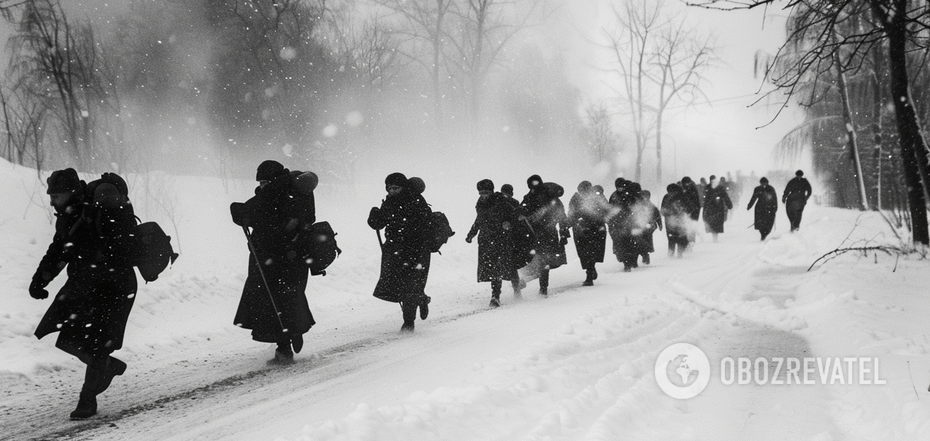Life
A country of continuous "no": prohibitions in the USSR that no fan of the Soviet Union will tell you about
The Soviet Union is often mentioned by supporters of that regime as a country with many opportunities and social guarantees. You've probably heard them talk about the most delicious Soviet ice cream and ham for three kopecks, but you've learned about the severe restrictions on human rights from history books.
Behind the scenes of the utopian Soviet picture, there was strict censorship and many absurd prohibitions. Blogger and researcher of life in the USSR Maksym Myrovych told us more about them.
It is not surprising that fans of the USSR cannot look at it soberly and recognize that life in the "scoop" was not the best. Most people might indeed have thought that life in the Soviet Union was easy and carefree because they had never seen alternatives.
Traveling abroad
Remember how excited former Soviet citizens used to be about traveling to other countries. It's not surprising, because it was complicated to leave back then and, as a result, about 98% of people had never seen anything but the "scoop," but they knew a lot of rumors about the "decaying West."
It was impossible to leave without the so-called permission from the authorities and the presence of "reasons to leave." Only those who had to go to scientific conferences, symposia, or on a Komsomol tour could see the world.
In addition, before traveling, it was necessary to undergo many checks so that the authorities could finally decide whether they could let their serfs go abroad.
Moving within the USSR
It might seem that if one could not travel abroad, one could move freely within the USSR, but not so. Of course, people could go on a hiking trip to the mountains, forests, etc., but it was impossible to move to Moscow, Minsk, or Kyiv at will.
This is why the institution of "residence permit" was created. It prohibited free movement without, for example, absentee ballots from the landlord from work.
And to travel outside the village, people generally had to take permission from the village council. Moreover, the trip had to last no longer than 30 days in any case.
Criticism of the government
After the Bolsheviks came to power in the USSR, it was forbidden to criticize the government in any way. There was even a real criminal article for "anti-Soviet agitation."
Back then, you couldn't express your thoughts about the system even in the kitchen of your own home, because your neighbors in the communal apartment could tell. If you suggested that there might be some problems in the country, you were probably a closet anti-Soviet.
Business
The only businessman in the USSR was the state, so all entrepreneurs were declared "freeloaders and speculators" and outlawed. People could not exercise their right to self-employment in any way, because the government knew better who, where, and for whom they should work.
Those who tried to resell goods were called "speculators". The state fought them separately, although it was engaged in similar activities. Only it bought goods abroad and resold them on the domestic market.
Currency
The USSR itself had foreign currency reserves because it bought goods abroad and sold raw materials itself, but ordinary citizens were strictly forbidden to have currency. A person who had money could start to feel free and want to leave the country at any time. That's why there was a criminal article for keeping foreign currency.
In the late USSR, alcohol was called the "strongest currency" and was used to pay for services to doctors, plumbers, etc.
Books
You may have heard the myth that the USSR was a country where people read a lot. This myth was created by counting the total amount of waste paper sold to the population, which was a lot because the state had a monopoly on printing books and supplied the population with a lot of junk with beautiful covers.
The USSR published mostly boring classics, scientific literature, and a few fairy tales. Soviet citizens had never heard of world popular literature like Kafka, Orwell, and Bertrand Russell.
In addition, even some Soviet writers were banned. All this left a huge intellectual gap in the lives of entire generations.
Education
Despite all the myths, it was still impossible to get a free education in the USSR. Since 1940, tuition in Moscow schools cost 200 rubles per year, in provincial schools – 150 rubles, and university fees were 2 times higher.
During Khrushchev's reign, direct payment for university tuition was indeed canceled. However, after graduation, students were required to work for 2 years on an internship. Of course, it was impossible to refuse this.
Real estate
There was no free real estate market in the USSR. That is, one could neither buy an apartment nor sell one's own. Thus, Soviet citizens were deprived of their inalienable right to private property.
However, later in the late USSR, cooperative apartments could be sold, but only to members of the cooperative. There were also so-called "indirect sales" when people independently agreed on an exchange, as a result of which one of the parties received unspoken monetary compensation. But all this was illegal.
Subscribe to the OBOZ.UA channels on Telegram and Viber to keep up with the latest events.



























